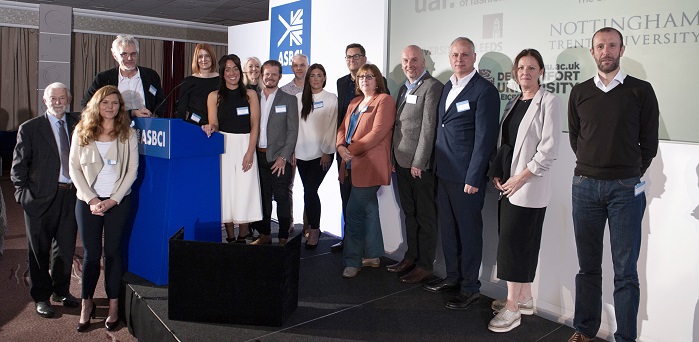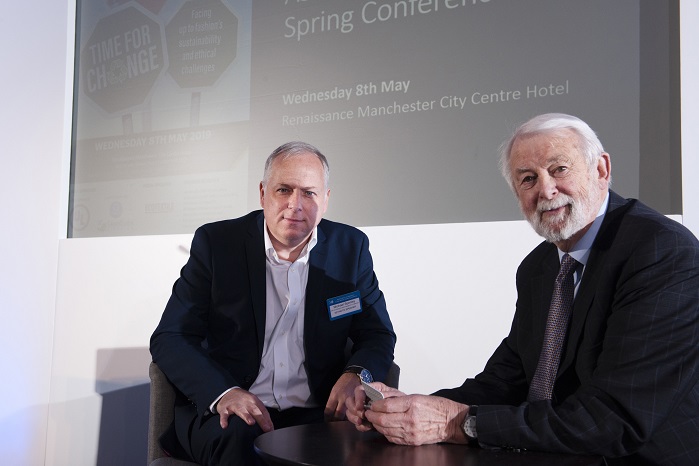
There was a strong focus on potential solutions at the ASBCI conference Time for change – facing up for fashion’s sustainability and ethics challenges, which took place on 8 May in Manchester. Expert speakers from across the fashion industry and academia gathered together to acknowledge the scale of the challenges facing the sector and highlight practical initiatives, innovative thinking, and business realignments that could help create a sustainable future for fashion.
Speakers made it clear that sustainability is no longer just an optional extra. Not only is there a clear business case for sustainable business models, but legislation is increasingly transforming industry response from the voluntary to the mandatory.
Taking control
In the UK, the Modern Slavery Act 2015 already requires businesses with a turnover of more than £36 million to report on modern slavery in their supply chains. Daphne Guelker from UL explained that a new bill has been submitted that will demand an explanation for inaction, name and shame non-compliant organisations, and ban them from public procurement.
“The legislators are telling us more needs to be done”
Daphne went on to set out concrete steps that will enable businesses to start taking control of this complex and pervasive problem, while Carly Bilsbrough from Shop Direct talked delegates through the retailer’s labour initiative in South India to combat labour violations and improve working conditions in mills, and in doing so create a safe and sustainable future for the industry in the region.

Phil Townsend from M&S explained how the Better Cotton Initiative is transforming the sustainability of this global commodity, while Peter Hughes from Eurofins / BLC Leather Technology Centre highlighted the complex and often conflicting nature of emotive sustainability issues with an examination of the pros and cons of leather versus its vegan alternatives, illustrating how all materials have potential issues.
“Raw material choice is critical. You need to look at chemicals, manufacturing methods, social implications, and end of life – can it be recycled?”
Overconsumption
Overconsumption and its knock-on effect on textile waste were key concerns. The buy now, wear once, and throwaway culture and the linear take, make, dispose business model that supports it must end. Vanessa Wakefield from Recyclatex discussed current and future models for recycling and reuse, including fibre-to-fibre recycling, while Garry Knox from GreenEarth Cleaning highlighted the role that sustainable aftercare can play in making garments last longer.
But, ultimately, sustainability must be win-win. For the fashion industry to have a sustainable future, ethical fashion must make money for businesses and fulfil the consumers’ desire for newness with products that not only have a reduced environmental impact during manufacture but that can also be recycled or reused effectively to reduce the use of future – and finite – resources. It must strive to change behaviours but not wait for consumer pressure to drive positive action. It will involve collaboration at all stages of the supply chain and even between competitors, and businesses that get it right will reap the rewards of both revenue and reputation.
Important topic
“This was a fascinating conference on a very important topic for the industry,” said Dr Alistair Knox, ASBCI Chairman. “The incredible attendance proves just how seriously the industry is taking it. The speakers were excellent, and we have already had requests to hold a follow-up conference next year as well as more focused technical seminars delving deeper into specific aspects of sustainability, so we are looking into various possibilities to keep the momentum going.”
The conference was hosted by Dr Julie King, deputy dean at the University of South Wales and ASBCI event director, and was sponsored by UL, GreenEarth Cleaning, and Coats.

Subscribe To Our Newsletter
Join our mailing list to receive the latest news and updates from our team.





